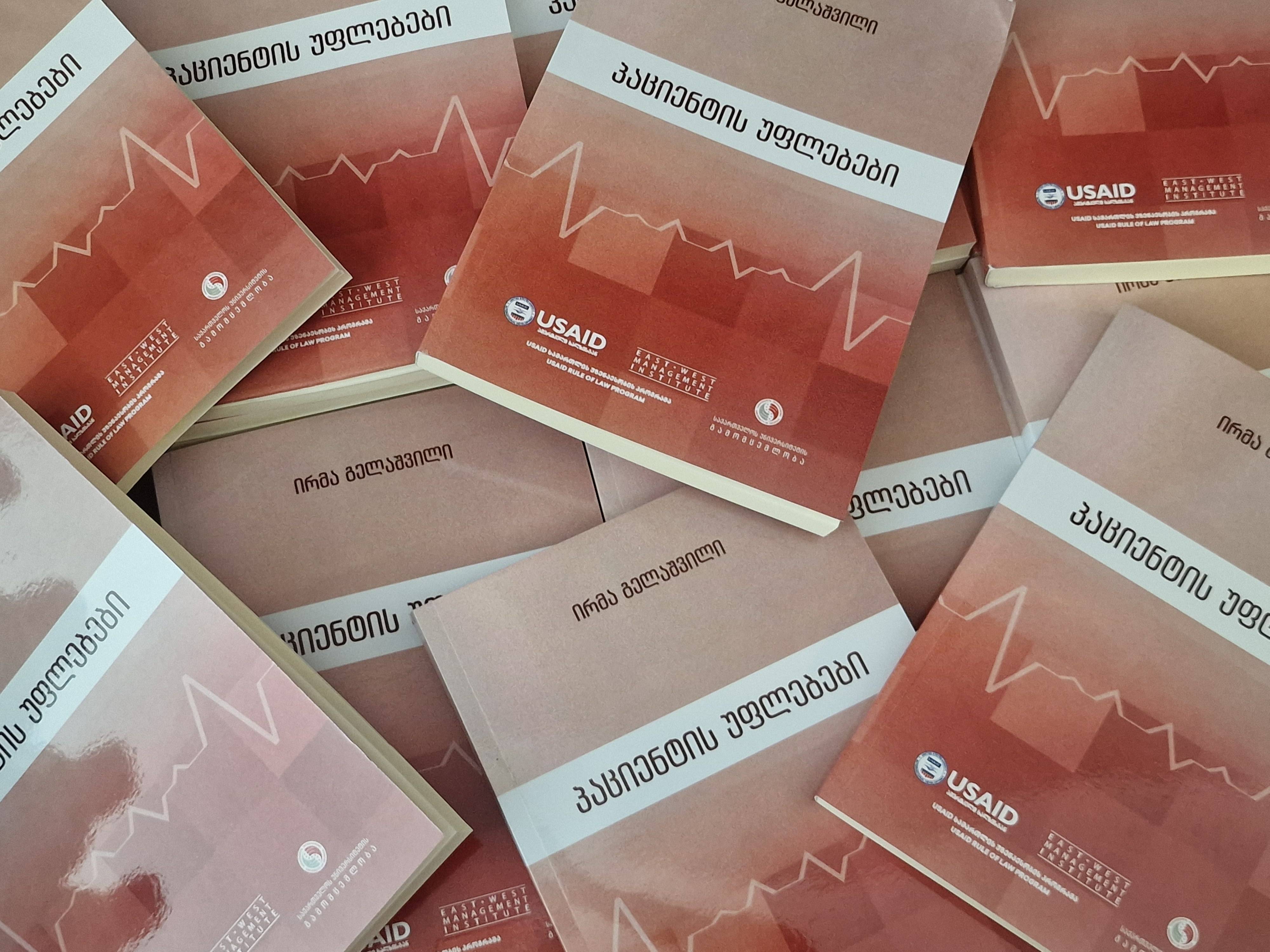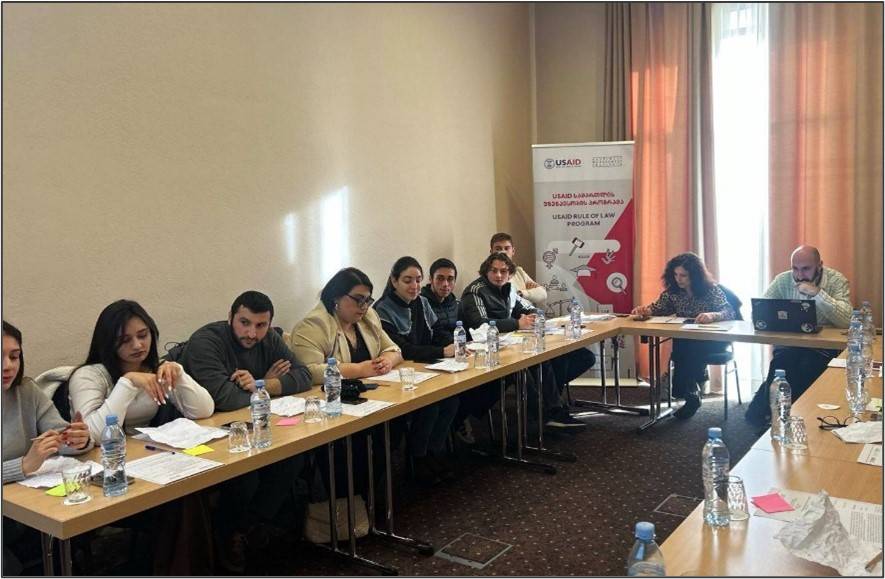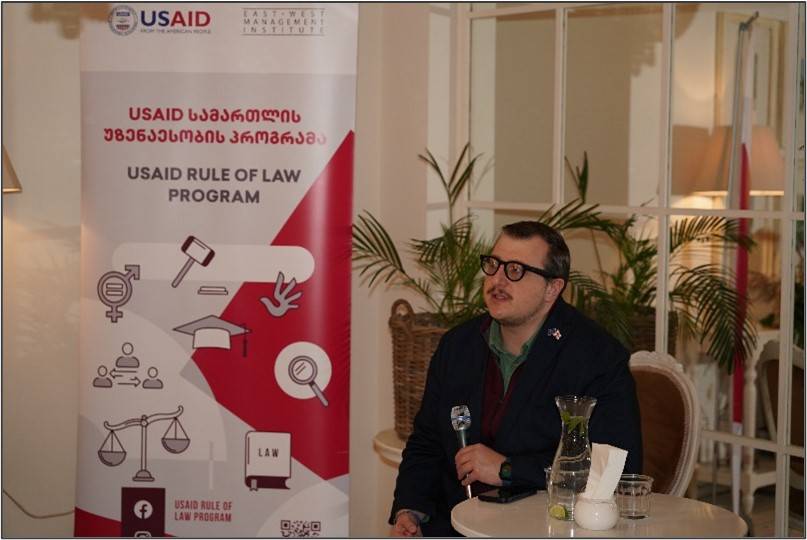Presentation of Book on Patient Rights
On June 28, 2024, University of Georgia Lecturer Irma Gelashvili announced the release of a new textbook designed to equip students and young professionals with knowledge about the rights of patients. The USAID Rule of Law Program sponsored the book’s creation.
At the release event, attended by approximately 70 judges, doctors, lawyers, professors, and students, the author shared insights into the creation process and provided an overview of the Rights of Patients textbook. This addition to Georgia’s medical law literature will be an essential guide to understanding and upholding patient rights. It covers topics including the principles of medical law, informed consent, patient confidentiality, living wills, refund policies, and the rights of minor patients.
Ana Khurtsidze, Head of the School of Law at the University of Georgia, began by highlighting the critical importance of legal textbooks in Georgia, where such resources are currently limited. She articulated how the Rights of Patients textbook addresses a significant gap in legal education and practice. Khurtsidze emphasized that comprehensive texts like these are vital for equipping legal professionals with the knowledge to navigate complex medical legalities and for fostering a deeper understanding of patient rights within the Georgian legal framework.
Following Khurtsidze, Mariam Vardosanidze, Legal Education and Bar Exam Specialist at USAID Rule of Law Program expressed the Program’s support for legal education in Georgia, emphasizing the significance of the textbook within the legal landscape and spoke on the broader implications of such literature. She stressed that the Rights of Patients textbook is essential for the protection of patient rights and the ongoing development of medical law in Georgia.
Irma Gelashvili, the book’s author, provided a detailed exploration of the textbook’s content. She shared the rigorous process behind its creation and emphasized its comprehensive coverage of critical topics. Her presentation offered attendees a thorough understanding of how the textbook serves as a practical tool for implementing legal standards and protecting patient rights in various healthcare scenarios. She also noted that this book is not just a reference guide but a critical resource to be used in the creation of a more patient-centric legal system in healthcare. She also stressed that alongside the growth of court practices, such textbooks are indispensable for fostering a legally sound and ethically responsible medical environment in Georgia.










